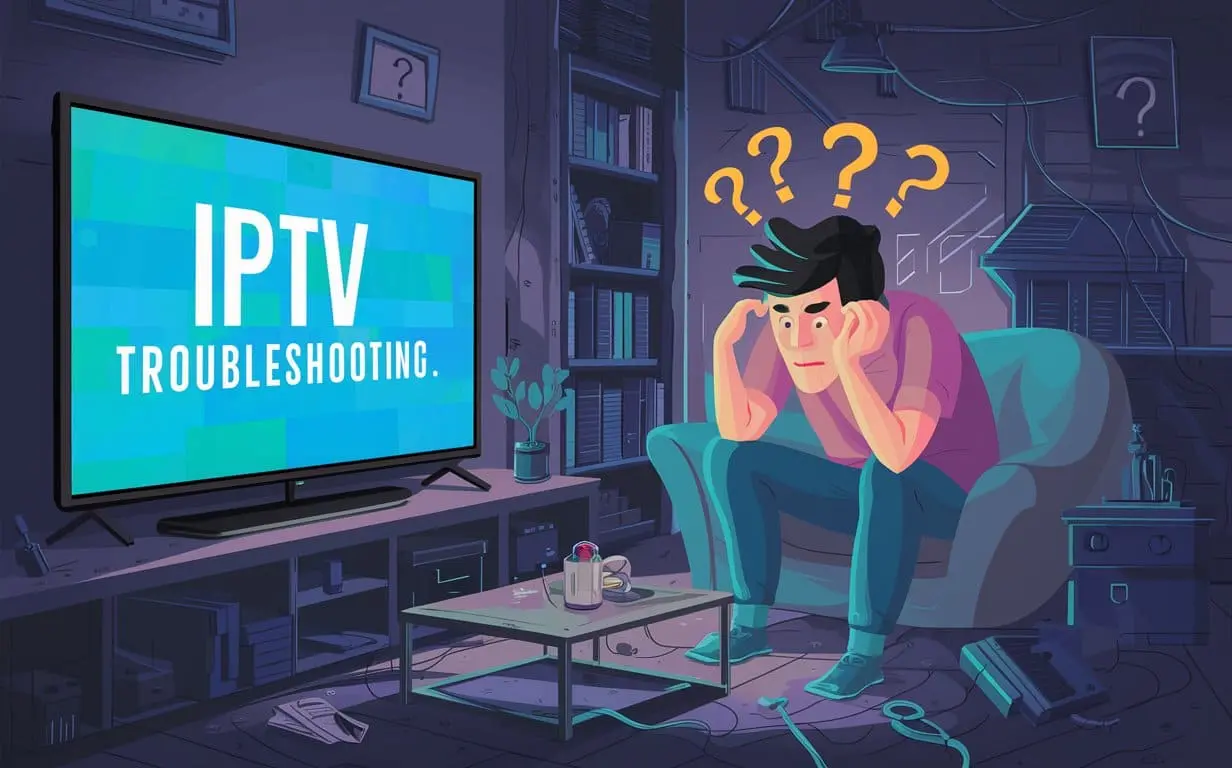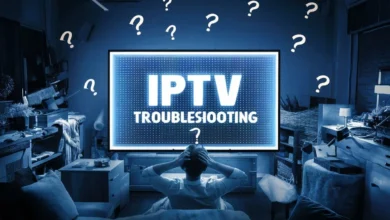Curious about IPTV in Canada? You’re not alone! With traditional cable subscriptions becoming less appealing, many Canadians are turning to IPTV for their entertainment fix. But how does IPTV work, is it legal, and what are the pros and cons? Let’s dive in and explore everything you need to know about IPTV in Canada.
Understanding IPTV
IPTV, or Internet Protocol Television, delivers television content over the internet instead of traditional cable or satellite connections. Think of it like streaming services such as Netflix or Disney+, but with a broader range of content, including live TV channels, on-demand movies, and even Pay-Per-View events. IPTV providers often offer extensive channel lineups from various countries, catering to diverse language preferences and interests.

How Does IPTV Work?
IPTV uses internet protocols to transmit TV signals. Here’s a simplified breakdown of the process:
- Content Acquisition: IPTV providers acquire content from various sources, including TV channels, movie studios, and other content creators.
- Encoding and Streaming: The content is then encoded and streamed over the internet using protocols like HTTP Live Streaming (HLS) or Real-Time Messaging Protocol (RTMP).
- User Access: Users access the content through an IPTV app or a set-top box connected to their internet-enabled device, such as a smart TV, smartphone, or computer.
Is IPTV Legal in Canada?
The legality of IPTV in Canada is a complex issue. While IPTV technology itself is legal, the legality of specific IPTV services depends on their content sources and licensing agreements. Some IPTV providers operate legally, offering licensed content, while others offer pirated content, which is illegal. It’s crucial to choose a reputable IPTV provider that adheres to copyright laws and regulations. Here are some red flags to watch out for when identifying potentially illegal IPTV services:
- Unusually low subscription fees
- Excessively large channel lineups, including premium channels
- Poor video quality or frequent buffering
- Lack of transparency about content sources and licensing
Benefits of IPTV
IPTV offers several advantages over traditional cable or satellite TV:
- Cost-effective: IPTV subscriptions often cost less than traditional cable packages, especially when considering the wider range of content offered.
- Flexibility: Watch your favorite shows and movies on various devices, anytime and anywhere with an internet connection.
- Extensive Content: Access a vast library of channels, including international options, on-demand content, and Pay-Per-View events.
- Customization: Many IPTV providers allow you to customize your channel lineup and add-ons to suit your preferences.
Drawbacks of IPTV
While IPTV offers numerous benefits, there are also some drawbacks to consider:
- Internet Dependence: IPTV relies on a stable internet connection. Buffering and interruptions can occur with slow or unreliable internet.
- Legality Concerns: Ensure you choose a legitimate IPTV provider to avoid legal issues.
- Technical Issues: Setting up and troubleshooting IPTV can be more complex than traditional cable or satellite TV.
Choosing the Right IPTV Provider
Here are some factors to consider when selecting an IPTV provider:
- Content Library: Choose a provider with a channel lineup that caters to your interests and language preferences.
- Price: Compare subscription fees and consider the value for money offered by different providers.
- Device Compatibility: Ensure the service is compatible with your preferred devices, such as smart TVs, smartphones, or streaming boxes.
- Customer Support: Opt for a provider with reliable customer support to address any technical issues or queries.
- Reputation and Reviews: Research the provider’s reputation and read online reviews to gauge user experiences.
Exploring IPTV Options
Here are some reputable IPTV providers offering services in Canada:
Remember to research and choose an IPTV provider that aligns with your viewing preferences and adheres to legal guidelines.
Embracing the Future of Television
IPTV offers a flexible, cost-effective, and content-rich alternative to traditional television services. By understanding how IPTV works, its legal considerations, and the factors to consider when choosing a provider, you can make informed decisions and enjoy a personalized television experience.

Frequently Asked Questions
Is IPTV better than cable?
IPTV offers advantages like cost savings, flexibility, and a wider content selection. However, cable may provide better reliability for users with unstable internet connections.
Do I need a VPN for IPTV?
While not always necessary, a VPN can enhance privacy and security when using IPTV, especially if you’re concerned about online tracking or accessing geo-restricted content.
Can I use IPTV on multiple devices?
Many IPTV providers allow simultaneous streaming on multiple devices, but the number of devices may vary depending on the subscription plan.
What internet speed do I need for IPTV?
A stable internet connection with a minimum speed of 10 Mbps is generally recommended for smooth IPTV streaming.
Is IPTV the same as streaming services like Netflix?
IPTV offers a broader range of content, including live TV channels, while streaming services like Netflix primarily focus on on-demand movies and TV shows.


